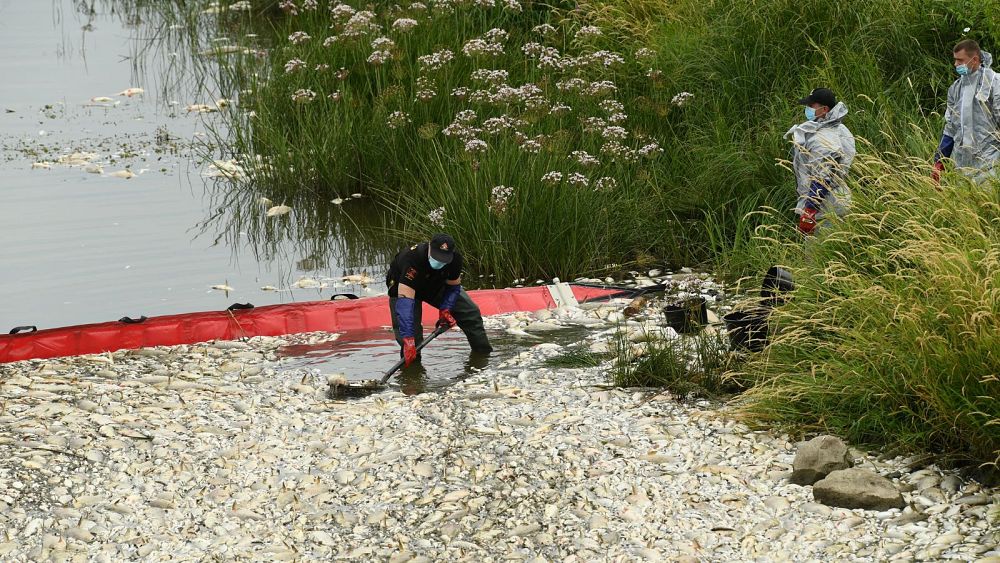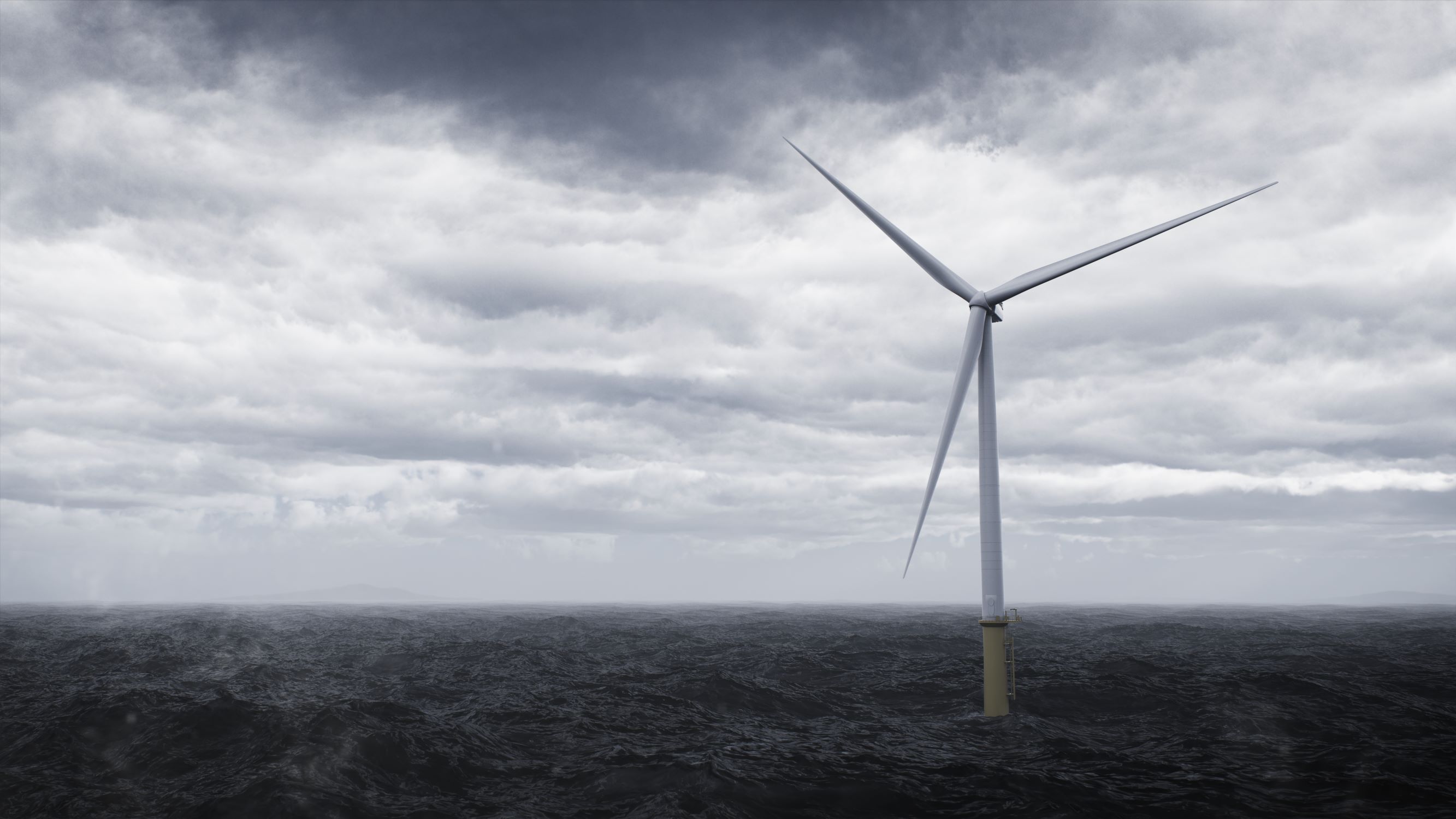In addition to countless dead birds, beavers and mussels, half a tonne of dead fish flows through the Oder in Poland every hour. The smell of decaying corpses and something even more sinister lingers on the riverbanks, while the poison behind the poisoning remains a mystery.
As of August 14, Polish authorities and locals recovered more than 20 tons of dead fish from the waterway – some burning their hands in the process. polishing and German Media have condemned the poisoning as unprecedented ecological catastrophe. Experts estimate the river will take at least 10 to 15 years to recover.
“This is a crime against nature, the environment and people,” says Dr. Sebastian Pilichowski, a biologist at the University of Zielona Góra, to the Polish newspaper Gazeta Wyborcza. “It is a mass death sentence and death will not be instantaneous. fishes fight for their lives in the shallow coastal waters with an invisible enemy. You feel the pain.”
Where is the Oder affected by pollution?
The damage travels further north with the flow of the river – called Oder in German or Odra in Polish Czech.
It has already reached the Szczecin Lagoon, which borders the two countries, and is expected to devastate the basin’s rich fish stocks. From there, the toxins get into the Baltic Sea and ride east on the current. They are likely to affect the West Pomeranian coast and some tourist locations, such as the seaside resort of Międzyzdroje.
Fishing is banned until at least October, but fishermen doubt they can work until spring. “No one knows anything yet,” a fisherman told Gazeta Wyborcza. Some fish on land are so big that they don’t fit in the garbage bags. Such large specimens would normally make big catches, but now it will be years before they reappear. The locals are already threatened with layoffs fishing and tourism companies.
Unique nature reserves such as the Lower Oder Valley Landscape Park and the Warthemündung National Park are also under threat. The former consists of a sewer network where water almost stagnant. When the toxins enter the channels, “all nature will be wiped out” warns Ryszard Mićko, Director of Landscape Parks in the West Pomeranian Voivodeship. “I can’t imagine that happening.”
The Warthemündung National Park is home to over a dozen endangered species, such as the Eurasian teal and the curlew. Although the river flows 3 km from the park’s borders, birds feeding on fish carcasses mean the toxins can enter the park’s food chain.
No substance or culprit has been identified yet
We still don’t know what substance caused it the poisoning or when exactly it reached the river. But the general consensus is that it was a premeditated act.
“We are most likely dealing with a crime involving the introduction of a substance into the water that caused the death of fish and other organisms. This is currently under review,” Deputy Climate and Environment Minister Jacek Ozdoba told Polish media.
“Since the Oder is a huge river, the spill had to be very large or the poison very strong.” explained Professor Jan Marcin Węsławski, marine biologist and director of the Institute of Oceanology at the Polish Academy of Sciences.
Up until August 11, the prime suspect was mesitylene, an industrial solvent found in two samples but undetected after August 1. Then German researchers discovered Mercury Levels so high “that they couldn’t define the scale”. This theory is still debated.
Polish authorities found no more mercury after Thursday, theirs German Colleagues discovered high concentrations. The Polish samples came from the mainstream, while German researchers took theirs from standing waters. But most researchers agree that mercury alone doesn’t explain the die-off, especially since concentrations have fallen to excessive, but not overscale, levels.
Now some think the high salt content of industrially produced salts is to blame. Such substances can be toxic in themselves, but contain a lot of salt water can also be temporarily difficult to solve metals from river beds, which explains the presence of mercury.
The Wroclaw District Attorney‘s Office has set up a special unit to investigate the spill and tests are underway at businesses along the river. The police have offered a prize of PLN 1 million (€215,000) for help in finding the perpetrator.
The Polish government is under fire for its slow response
The Polish government has been widely criticized by scientists, environmentalists, opposition parties and German colleagues for being too slow to react.
Fischer first noticed dead fishes in waters near Oława, about 400 kilometers from the sea, three weeks ago, on July 25. On August 1, the mayor of Oława, Tomasz Frischmann, alerted the provincial governor of the Lower Silesian Voivodeship, Jarosław O Bremski. Obremski had been on vacation since July 28 and did not return to help contain the disaster, prompting opposition politicians call up for his dismissal.
Małgorzata Tracz, an opposition Green Party MP, alerted local and regional authorities on August 3. She turned to Polish Water, the government agency responsible for inland waterways, and the President of Wrocław, among others. According to reports, no one answered her.
The government responded two weeks later after the first fish were found in Oława. On August 11, Defense Minister Mariusz Błaszczak announced that 150 soldiers would be dispatched to help clean up the river and erect barriers to catch the streams of dead fish.
On August 15, an icebreaker joined the cleanup effort. Its special task is to create waves so that dead fish float up from the river bed. The citizens also carried out their own clean-up campaigns.
It also took until Friday for the government to issue a warning asking people to stay away from the river. So far, hospitals have not admitted any victims poisoning, although some people who took out fish without protective gear have burned hands. one dog who swam in the river in Breslau had to be treated for acute poisoning.
Polish Prime Minister Mateusz Morawiecki dismissed both the Chief Inspector for Environmental Protection and the Head of Polish Waters on August 12.
The opposition Green Party on August 15 submitted a motion to dismiss all five governors of the voivodeships adjacent to the Oder. “They had the means to prevent the poison from spilling all over western Poland,” said Green Party leader Urszula Zielińska. “Nothing was done for 17 days.”
How did scientists react to the ecological catastrophe?
The topic was particularly absent from the state television channel TVP. For several scientists, the poisoning reveals weaknesses in Poland’s water monitoring system.
“That’s a scandal” says Węsławski. “Our waters are only checked a few times a year when it should be a few times a day.”
Reliable information on the status of the crisis is therefore lacking. There is no conclusive news as to whether other organisms – such as shellfish beyond mussels, plants and plankton – were also affected, for example. But this information is critical to identifying the toxin and understanding how fast it is Flow can recover.
“You want honest, up-to-date and complete results from the government, ideally with explanations for those who haven’t studied hydrobiology. Then the conclusions and a repair plan. But we have what we have.” writes Biologist and ecologist Marta Jemaczek-Sitak.
Germany is not happy about Poland’s reaction to the Oder poisoning
German Authorities do not share Jemaczek-Sitak’s stoicism. Officer accused their Polish colleagues to break international law by not passing on the news of the poisoning. The German side learned about the crisis from a ship’s captain on August 9th.
Warsaw only officially informed Berlin Berlin on August 11, when German researchers had already detected mercury in the Flow Rehearse. A few tons of dead fish had already washed up on the German riverbanks, where similar obstacles to catching carcasses appeared since yesterday (August 15).
Even constitutional judge Krystyna Pawłowicz, a conservative appointed by the ruling party recommended that the Germans poisoned the river. Though the claim literally reverses the tide, it goes with the tide of strained Polish-German relations.
Officials from the countries met on Sunday to discuss joint solutions, but tensions remain high.
Is there still hope for the Oder?
The Oder is the second largest river in Poland. It begins in the Czech Republic and flows through Poland on the border with Germany into the Baltic Sea. In healthy times, the river is home to more than 40 fish species.
Along with participating in clean-up efforts and finding the culprit, the Polish environmental community is trying to keep up its courage. Lower mercury levels than originally found are good news. The fact that the incident occurred after the breeding season for most **birds** was over is another source of cautious optimism.
Prof. Węsławski too Points to the resilience of nature. “Odra is not dead yet,” he says. “We may not be able to use it for a while, but every ecosystem rebuilds. Maybe in a different form, but it will be rebuilt.”




